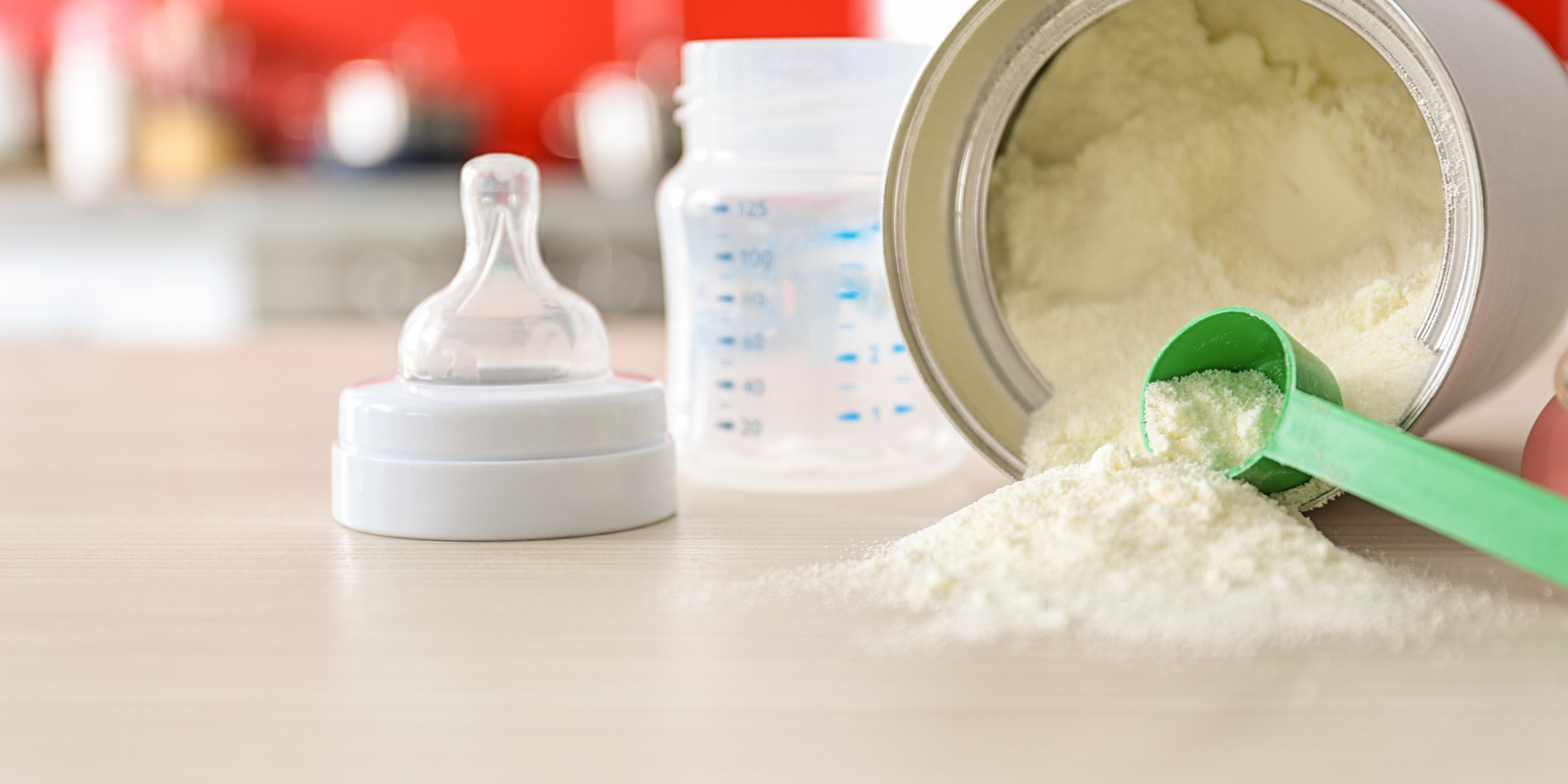How to Choose the Best Organic Formula for Supplementing
In this guide, we'll delve into the significance of breastfeeding, the value of alternative feeding methods, and the considerations when turning to formula, especially the organic variety.

We all know that breastfeeding is the best source of nutrition for babies. However, in cases where additional supplementation becomes necessary, it's advisable to consider donor breast milk, if possible, before turning to formula.
Furthermore, for mothers who intend to resume breastfeeding at a later stage or continue breastfeeding alongside supplementation, alternative feeding methods like using a Supplemental Nursing System (SNS), cup feeding, or syringe feeding can be valuable. These approaches help you preserve the bond between you and your baby and facilitate a smoother transition back to breastfeeding.
If you have to use formula, organic formulas are a good option because they contain fewer synthetic additives and pesticides. Choosing a formula can be a daunting task. Organic formulas are generally more expensive than regular formulas. Cost is always a concern, so you can explore various brands and lines to find one that fits your budget and still meets your baby's nutritional needs.

How to Choose the Best Formula
Whenever choosing an organic formula, consider these factors:
- Ingredients are the first and the most crucial part of the formula. Try and Look for formulas with high-quality organic ingredients. Remember to avoid those with artificial flavors, colors, or preservatives.
- Make sure to read the labels and ensure that all necessary nutrients are included. Check whether the formula contains essential nutrients like DHA, iron, and prebiotics. They are important for a baby's growth and development.
- Allergens are something parents often forget to consider. Check the formula's ingredients to ensure it's suitable for your baby.
- Preparation of some formulas requires specific steps that you have to research first. So, choose one that fits well with your lifestyle and needs.
- Consider consulting a specialist. Always check in with your pediatrician before introducing any formula to your baby's diet.
- Organic certification is essential. The formula should meet specific organic standards set by various organizations. Look for formulas with the "Certified Organic" label.
- There are so many types of organic formulas, including cow's milk-based, soy-based, and specialty formulas for babies with specific dietary needs. There are also many options if your child is struggling with allergies. Organic baby formula from Baby Milk Bar is one of the most well-tolerated by most babies. It offers a variety of options depending on the needs of your child, and the ingredients do not include any artificials, pesticides, or GMOs.
- Most organic formulas come in hydrolyzed versions. That means that the proteins are partially broken down. These formulas are designed to be easy for a baby to digest. They are often recommended for babies with sensitivity to intact proteins.
- Organic formulas aim to mimic the nutritional content of breast milk. However, it's essential to note that formulas can not replicate breast milk fully. Breast milk provides unique antibodies, enzymes, and live cells that offer various health benefits for babies.
- Make sure the formula contains prebiotics and probiotics to support a baby's digestive health and immune system.

Other Things to Keep In Mind When Choosing a Formula
- Transitioning from breast milk to formula is always a stress both for a baby and a parent. In order to allow your baby’s digestive system to adjust, consider gradually transitioning your baby to the formula for supplementation.
- In order to store the formula and keep it safe, you have to follow the manufacturer's instructions to ensure safety and quality.
- Every child is different, so keep in mind your baby’s personalized needs. What works best for one baby may not be the best choice for another baby.
- Be attentive and pay attention to your baby's cues. Consulting with a professional if you have any concerns or questions is always a good idea.
- True Lactose intolerance is rare, and if you suspect your baby has lactose intolerance, you should have them tested. If your baby tests positive for true lactose intolerance, your healthcare professional will make recommendations accordingly. Lactose sensitivity, on the other hand, is not a reason to discontinue breastfeeding. A change in the mother's diet will usually solve the issue.
- Packaging is a crucial part of a good quality product. Organic formulas usually come in BPA-free packaging. This minimizes the exposure to potential harm. Organic formulas must meet specific regulatory standards, depending on the country where they are produced and sold.
- Whenever you prepare formulas, it's important to use safe water if you're not using ready-to-feed formulas. If you think your tap water quality is a concern, use filtered water.
- Expiration dates are often neglected. Use the product before it expires to ensure its nutritional quality and safety.
- Remember to arrange the feeding schedule for your baby. Establish a feeding schedule that works for you and your baby's needs. Some babies prefer more frequent feedings, while others do well with smaller, spaced-out feedings.
- Last but not least is the cleanliness and sterilization. Properly clean the bottles, nipples, and other feeding equipment to maintain hygiene.
Conclusion
In closing, remember that breastfeeding is the optimal choice for infant nutrition, but when supplementation is necessary, consider donor breast milk and alternative feeding methods before turning to formula. Organic formulas offer a natural option with fewer additives but choose wisely. Maintain hygiene, consider your baby's unique needs, and always consult with a healthcare professional for guidance.
